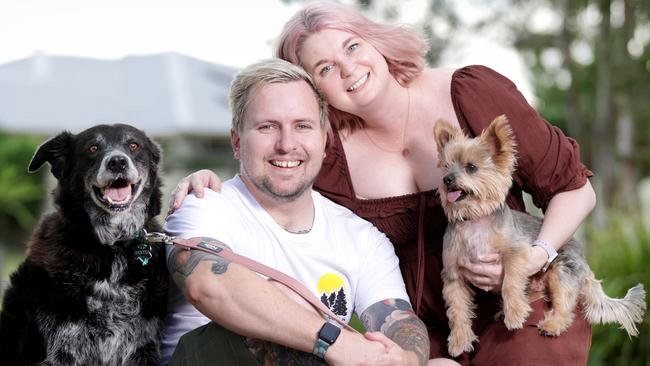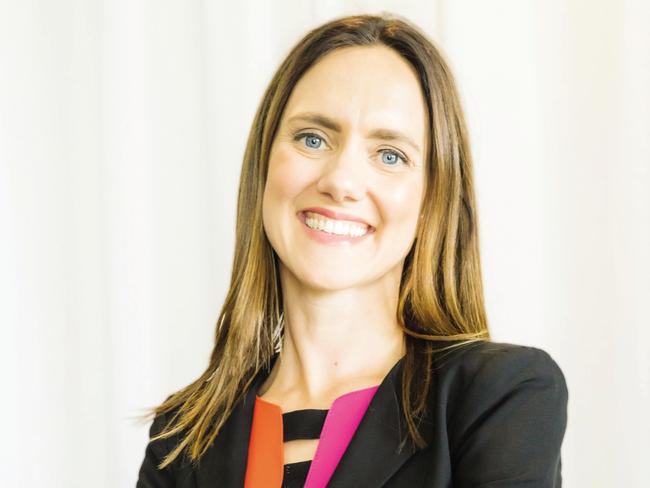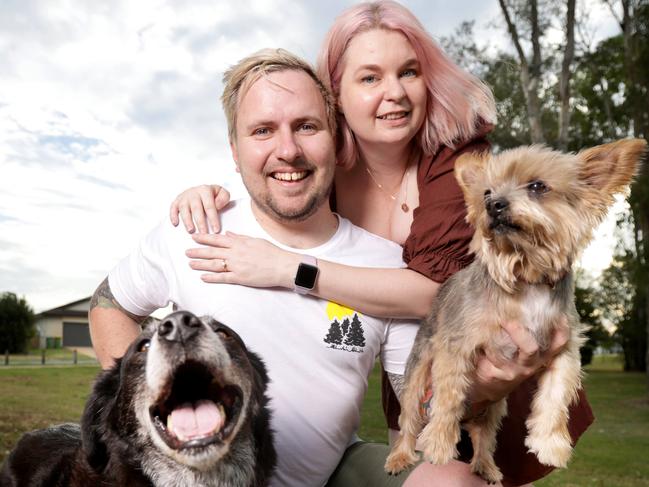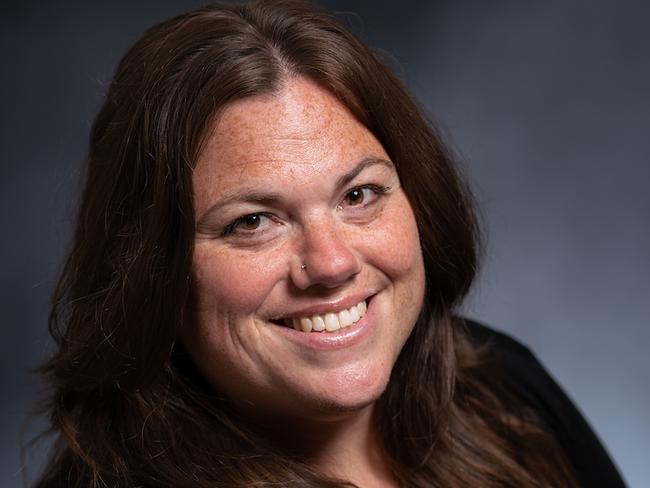Child-free couples on the rise as climate change and cost of living discourage parenthood
Couples without children are on the rise compared to 20 years ago, new research shows. See how the numbers compare in your suburb.

National
Don't miss out on the headlines from National. Followed categories will be added to My News.
Australia’s ageing population problem is set to worsen, as Millennials and Generation Z reject parenthood amid fears for the planet, cost of living and world peace.
A new exclusive survey by data company Dynata reveals 31 per cent of non-parent Millennials (age 27 to 41) do not plan to have children and 23 per cent are unsure.
Among Generation Z (age 18 to 26) this is true for 13 per cent and 31 per cent, respectively.
While the most common reason to remain child free was “personal circumstances” (62 per cent of Millennials and 66 per cent of Gen Z agree), many respondents were also hesitant because “our planet can’t handle the people it already has” (44 per cent of Millennials, 49 per cent of Gen Z) and because “the world is an unsafe place” (41 per cent of Millennials, 54 per cent of Gen Z).

Social researcher and Gen Z expert Claire Madden said some young people that decided not to have children chose pets, lifestyle or careers instead, while others were discouraged by today’s “increased social complexity”.
“Our grandparents had a lot more complexity just in managing everyday survival,” Ms Madden said.
“Now there are so many more lifestyle conveniences yet greatly increased social complexity with social media that is feeding this rhetoric that it’s an expensive and unsafe place to raise kids and that the globe is not coping with populations.
“These messages are getting to our young people a lot more and at a younger age and clearly having an influence on their thoughts on having kids.”
The Dynata insights come as the number of child-free couples in Australia continues to rise.
They made up 38.8 per cent of families in 2021, up from 35.7 per cent 20 years earlier, according to census data.
Child-free couples were particularly common in Australia’s entertainment precincts, such as Civic in the ACT (78 per cent of families are couple families without children), Potts Point (75 per cent) and Darlinghurst (74 per cent) in Sydney, Fortitude Valley in Brisbane (72 per cent), East Melbourne (72 per cent) and Adelaide (66 per cent).
Greater Brisbane’s Madeline Scott and Tom McNamara, both 31, have been together for 11 years and are engaged to marry but do not plan to have children.
“I never imagined myself having children, it wasn’t something my family instilled in me,” Ms Scott said.
“Tom is the same – he doesn’t have the paternal feeling and doesn’t want to have children if it’s not 100 per cent his goal.
“We love our friends’ children and we know we can dote on them if we feel the need.”
Ms Scott said the cost of living was also a consideration.
“Tom and I both earn liveable wages but I don’t understand how people can bring up several children on a single wage, it blows my mind,” she said.
“We tried to see if we could just live off his wage and save mine and it’s not feasible.”

Australians as a whole are having fewer children.
In 2021, the total fertility rate was 1.7 babies per woman, according to latest figures from the Australian Bureau of Statistics.
That is down from 1.92 a decade earlier, and well below replacement level (2.1), which hasn’t been met since 1976.
The result is a population that continues to get older, with fewer working-age Australians to support retirement-age Australians.
At the 2021 Census, there were four people aged 15 to 64 for every one person aged 65 or older – down from a ratio of 5:1 just a decade earlier.
ANU Centre for Social Research and Methods demographer Dr Liz Allen said falling fertility rates were not a concern in their own right as they indicated increased autonomy and control over family planning for women who did not wish to have children.
However, for women who wished to have children but felt discouraged, it was “a human catastrophe”.
“The prospects of the future and the uncertainties of the world are being burdened on young people to make decisions that governments have failed to act on, like climate change, cost of living and so on,” Dr Allen said.
“In my mind that is a human catastrophe because when we ask young people, it’s almost like they have a lowered hope for the future.”

A declining birthrate also has consequences for the economy and Australia’s standard of living.
“If we were to have the fertility rate decline even further, say to 1.5 or 1.4 births on average per woman, we then get into low fertility territory which is then near impossible to come out of,” Dr Allen said.
“From an economic point of view we then will have to learn to live with living standards going backwards, generation on generation.
“We are already seeing that to some extent.
“At the moment we have an insufficient local workforce by way of skills and ability to do the jobs needed to keep Australia’s economy going.
“And we need people to be paying income tax to enable the government to have a budget to meet the needs of the population and fund essential services.”




